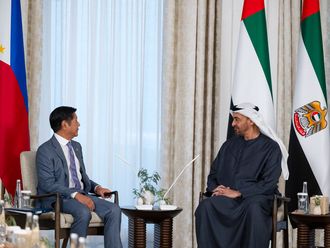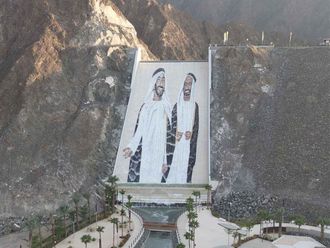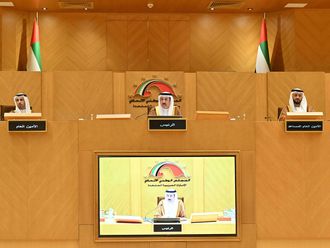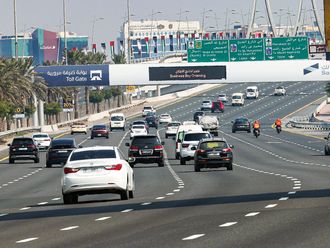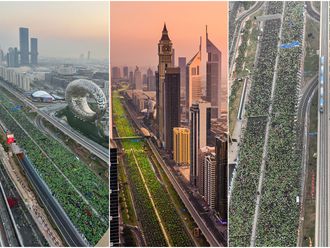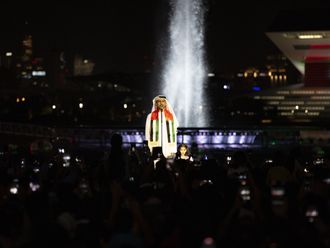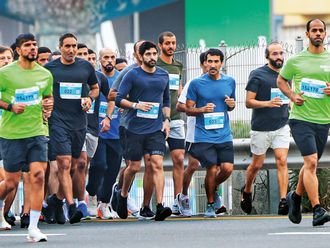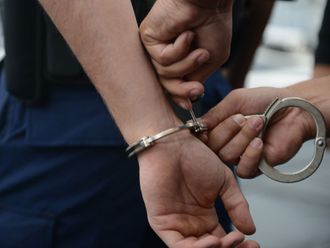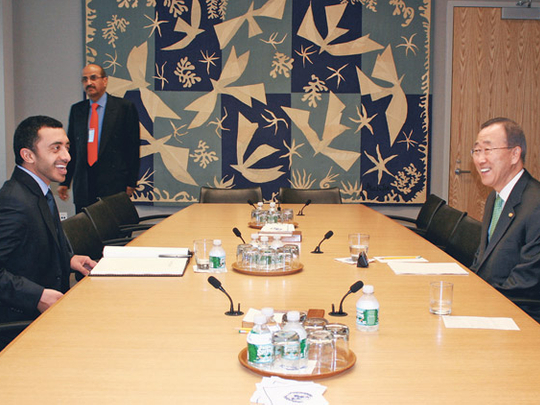
New York: Shaikh Abdullah Bin Zayed Al Nahyan, Minister of Foreign Affairs held a series of bilateral meetings on the sidelines of the nuclear Non-Proliferation Treaty (NPT) review conference at the UN headquarters in New York with a number of conference participants.
The meetings on Tuesday included a talk with Ban Ki-moon, United Nations Secretary-General where both sides discussed a number of topics, at the forefront the Palestinian issue and the situation in the Middle East. Those who met Shaikh Abdullah included Lene Espersen, Denmark's Minister for Foreign Affairs and German deputy foreign minister Werner Hoyer.
Shaikh Abdullah also met Jeffrey Feltman, Assistant Secretary of State for Near Eastern Affairs. They discussed the common positions on the Palestinian issue and the situation in the Middle East.
On Tuesday Shaikh Abdullah addressed the General Debate of the 2010 Review Conference of the Non-Proliferation of Nuclear Weapons Treaty in New York. He stressed the UAE supports the development of peaceful uses of nuclear energy as a right of every state party to the Non-Proliferation of Nuclear Weapons Treaty.
Responsible
However he emphasised the development of peaceful nuclear energy should be conducted in a responsible manner.
Shaikh Abdullah, who headed the UAE delegation to New York, said: "States with nuclear capabilities are obligated to assist non-nuclear states in developing peaceful uses of nuclear energy."
He also stressed non-nuclear states should adhere to comprehensive safeguard measures; cooperate fully with the International Atomic Energy Agency (IAEA) in their verification mandate; and take steps to address any concerns of the international community.
The following are excerpts from the speech he made.
"Mr President, at the outset, I would like to congratulate you on your election to chair the 2010 NPT Review Conference. I am confident your leadership and diplomatic skills will result in a positive outcome from the conference. I would also like to associate myself with the statement delivered on behalf of the Non-Alignment Movement by the representative of Indonesia.
"Forty years ago, the Nuclear Non-Proliferation Treaty (NPT) put into place one of the most important international treaties: states without nuclear weapons pledged not to acquire them, while nuclear-armed states committed to disarmament and the ultimate elimination of nuclear weapons. At the same time, the NPT promised cooperation in the peaceful use of nuclear technology under verifiable control. The founding principles of the NPT are clear in this regard. These principles should be honoured and strengthened without exception.
"At the root of its commitment to ensure global security and the prevention of proliferation of nuclear weapons lies the UAE's decision to join the NPT in 1995. This was followed by the ratification of the Comprehensive Nuclear-Test-Ban Treaty (CTBT) in 2000 and the conclusion of the Comprehensive Safeguard Agreement (CSA) in 2003. The UAE also signed the additional protocol to the CSA in 2009, with the ratification process being in its final stages.
"Today, the UAE government is taking further tangible steps to support the non-proliferation efforts of the international community.
"These steps include the development of an innovative model for adopting peaceful nuclear energy; a model that should help to reduce global non-proliferation concerns by demonstrating that nuclear energy can be adopted in a manner that is completely transparent, safe, secure, and peaceful. As such, and in exercising its right under the NPT, the UAE is pursuing the development of a peaceful nuclear energy programme to meet growing domestic energy demand.
"The UAE's awareness of its rights and obligations under the treaty, and its understanding of the unique circumstances surrounding the use of nuclear materials, led to the development and subsequent announcement of its ‘Policy on the Evaluation and Potential Development of Peaceful Nuclear Energy' in April 2008. This policy defines a series of strategies and commitments undertaken by the UAE Government to develop its nuclear energy programme in a responsible manner. Commitments to the highest standards of nuclear security and non-proliferat ion represent major pillars of this policy. In an effort to transform these aspirations into reality, the UAE has taken a number of ground-breaking steps, including the decision to renounce the development of domestic enrichment and reprocessing capabilities."


